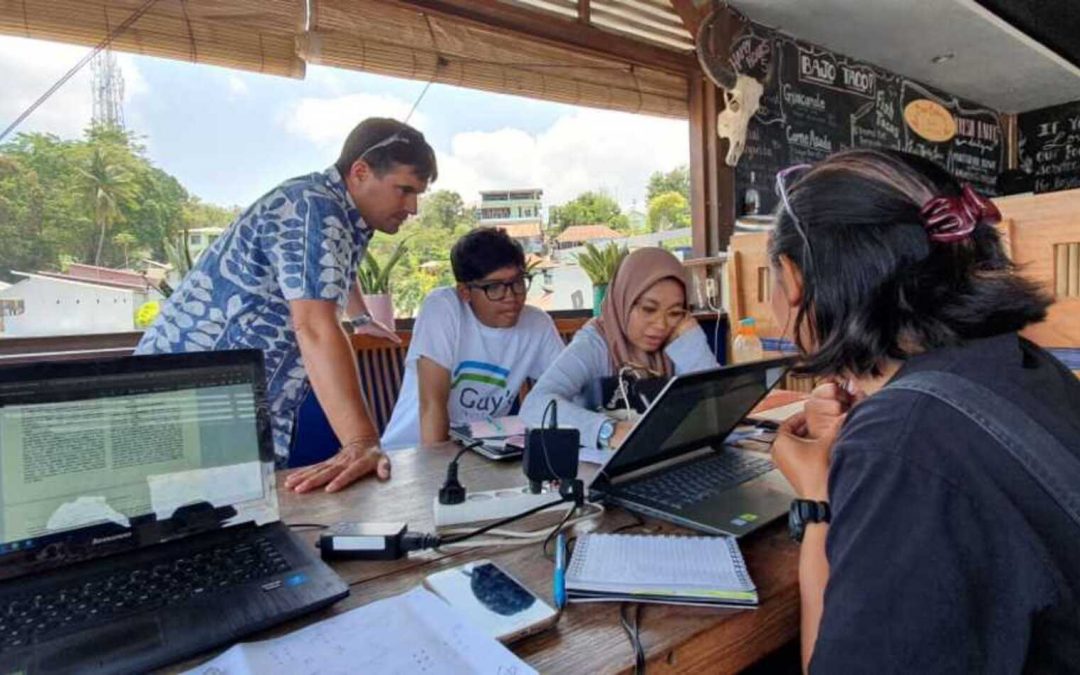Back when we were accepted to MIP-2019 each of us interns received a welcome pack. This pack included a reading list of journals about manta ray biology, manta ray conservation, sustainable fisheries and sustainable tourism. Andy has been encouraging us to read these materials ever since we arrived in Labuan Bajo. And today it’s time to evaluate how much we’ve learned. It’s time for our second Mini Test!
This Mini Test was much harder than the first one, and we really had to think about all that we have learned. After the time was up and we began to review our answers to each question, it promoted some interesting discussion between our team.
For example, we’ve been using the term citizen science a lot this month, but what is citizen science anyway?
National Geographic defines citizen science as the practice of public participation and collaboration in scientific research to increase scientific knowledge. Through citizen science, people share and contribute to data monitoring and collection programs.
Citizen science can therefore support biodiversity monitoring, and offers some advantages:
- Increasing the data available to support conservation management;
- Enhancing awareness about and engagement with conservation issues; while
- Helping to ensure that conservation resources are targeted whether they are needed most.
Despite these benefits, citizen science also comes with one potential limitation: data quality. As citizen scientists come from many different backgrounds, education levels, cultures, and ages they may observe and record information differently.
Luckily there are ways to manage and overcome this limitation. One way is to ensure methodologies are simple and not too technical or complex. To become a manta citizen scientist all you need to record is the date, divesite and number of manta sightings while diving or snorkelling. It’s very easy, isn’t it?
Citizen science is not only a great way to monitor biodiversity, its also a lot of fun to be part of something big!
As a MantaWatch citizen scientist you can simply report your marine wildlife encounters at http://mantawatch.com/report.
You can also learn more about how citizen science is becoming more and more important In Indonesia for issues such as monitoring of plastic pollution, bird populations and marine ecosystems.


